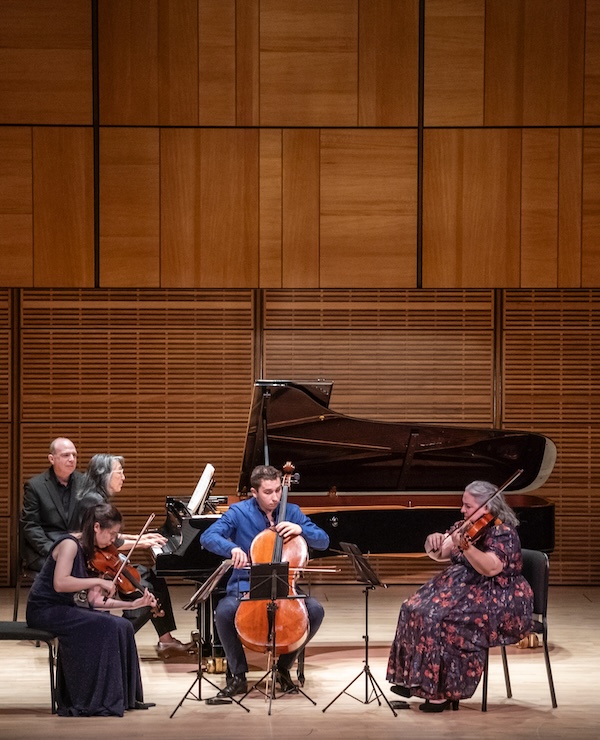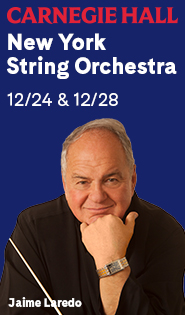Uchida and Marlboro Festival players offer a transcendent evening of chamber music

The great pianist Mitsuko Uchida doesn’t just play the instrument, she has multiple leadership positions as well. Two of those came together Tuesday night in Zankel Hall, where her Carnegie Hall Perspectives series and her directorship of the Marlboro Music Festival put Uchida in the company of three string players for an exceptional chamber music concert.
The music was from both present and past, with concise selections from György Kurtág preceding Beethoven’s E-flat Major Piano Trio, Op. 70, no. 2 on the first half, and Schumann’s Op. 47 Piano Quartet in E-flat Major on the second half.
If there was any particular meaning to E-flat Major this evening, it was impossible to discern. What was easy to hear, though, was the 19th-century chamber music tradition continuing through Kurtág, and the wonderful musicianship from Uchida, violinist Stephanie Zyzak, violist Beth Guterman Chu, and cellist Oliver Herbert.
These were musicians from the Marlboro Festival, and what they showed with Uchida was the festival’s method, which is both fundamentally natural and unique on the contemporary music scene. At Marlboro, concert programs aren’t pre-planned, they come out of extensive, intensive rehearsals, the kind that get the musicians deep into the music.
One heard that in the special quality of the playing in the Beethoven and Schumann. Every line, dynamic change, and signpost of form was both rich in meaning and light in sound, played with deliberate care and great, confident, ease. These are marvelous compositions that exemplify the classical tradition—phrases, harmonies, and rhythms coming together to capture the human complexity of simultaneous—and even contradictory—feelings. Images and the written word fix things statically in time, music carries past, present and future with it all at once, and accumulates context and meaning as it goes along, just like life.
In this performance there was flow across the details of each moment and the full shape of each half. Uchida started with “Play with Infinity” from Book III of Kurtág’s Játékok, a sotto voce wisp of a piece, maybe 30 seconds in duration, with one dissonant chime and an almost nightmarishly thin descending scale. This was a fantastic prelude to the Op. 70 trio, incredible tension released by Beethoven’s welcoming opening phrase.
On the level of the concert as a whole, it was ravishing to hear the music put together like this, as if Kurtág was asking Beethoven a question, the latter answering, and creating a dialogue that put two different eras into the present moment.
One often hears musicians in total coordination, the elements of a piece coming together with satisfaction in a way that highlights the mechanics of the composition. But it is a far greater thing, and much rarer, to hear musicians who have so completely incorporated the music that it sounds like independent voices speaking with each other in total understanding and concert.
The Beethoven glowed with beauty and a near-innocent humanity. In the second half, after four brief excerpts for strings from Kurtág’s Signs, Games and Messages, the Schumann quartet was extraordinary. One has not heard the restlessness in Schumann expressed with such beauty and understanding. What is usually an invigorating sense of agitation here had a more profound feeling, the composer showing what is usually communicated as angst as the counterpoint that makes the joys even greater. The strings, playing with a gorgeous tone, made each phrase sound like singing, Uchida’s luminous touch a self-effacing linchpin in the ensemble.
The Belcea Quartet and Quatour Ébène play octets by Mendelssohn and Enescu, 7:30 p.m. Wednesday. carnegiehall.org

